LONDON: Thanks to his dual roles as both artist and doctor, Ahmed Mater has spent a large part of his life contemplating the human condition in all its manifestations from the purely physical to the deeply creative. “It is very important to include the soul of humanity as part of our daily life needs,” Mater told Arab News.
His 2010 artwork ‘CCTV’ made a powerful statement about how planning often fails to factor in a human approach. It is a series of images based on CCTV footage from Asir Central Hospital (where Mater has worked) — the design of which is based on models imported from the West — including patients praying in the corridors. According to Mater’s website, the work is “a metaphor for a possible reinvention of these institutions based on local cultural and religious sensibilities.”
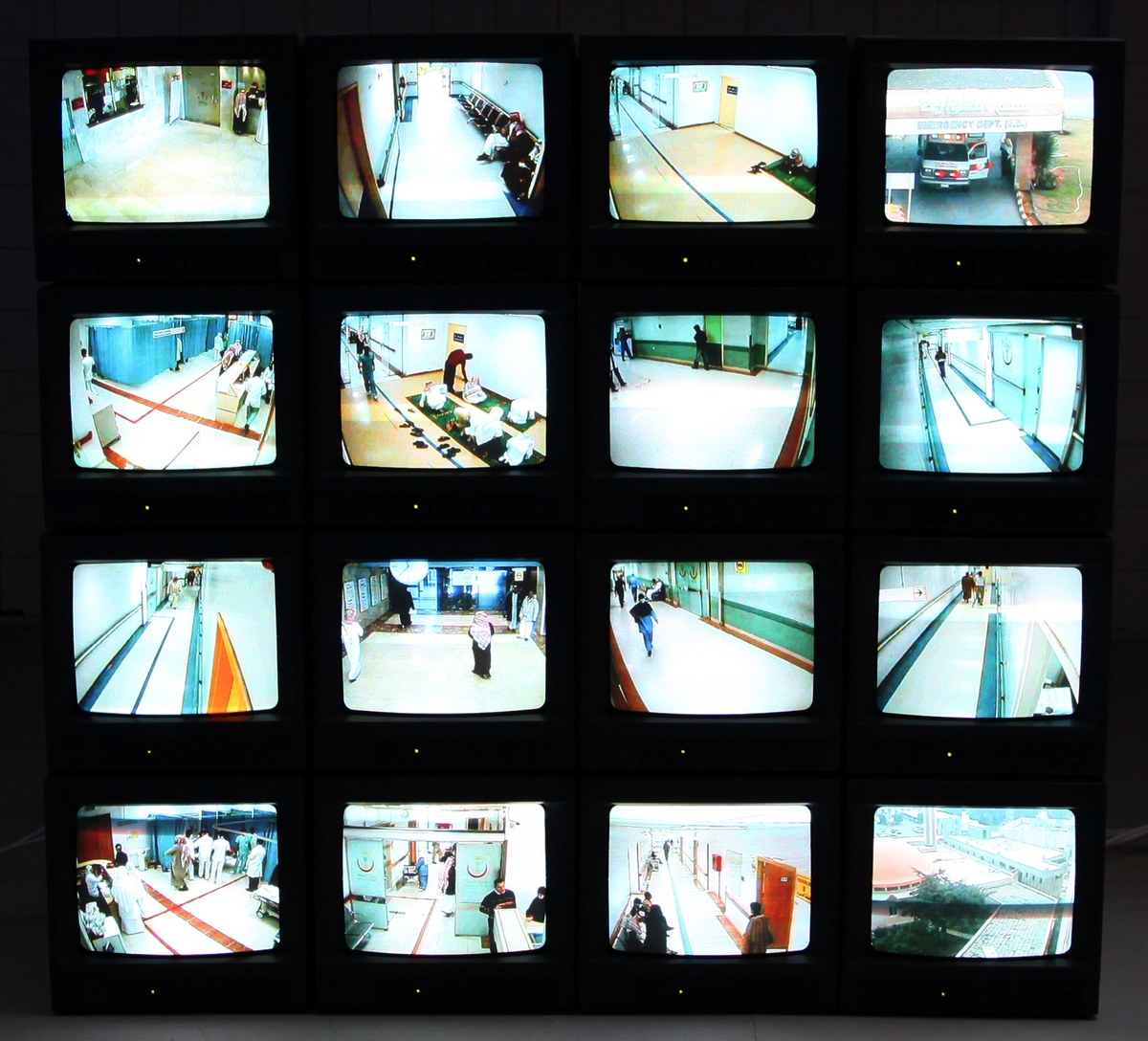
‘CCTV’, Ahmed Mater, (2010). Supplied
“In much of our urban and architectural planning we focus more on the materialistic elements of the structure itself, and we forget ourselves,” Mater said. “We have to stop thinking about buildings in terms of outward appearance and think about how we should be planning for the future to reflect ourselves. The focus on the hospital reflects my sphere of activity but I think it is important to apply this principle across many fields.
“At this time we are losing ourselves within an imbalanced system. I am not talking about radically changing systems — for example, capitalism or meritocracy — but we have to try and deal with their inherent problems,” he continued.
An important part of introducing more ‘soul’ into society, Mater believes, is for people to treasure their own cultural riches while recognizing and appreciating those of other cultures.
“It is very important to keep our identity even as we reach out globally,” he said. “I find that I am delving more and more deeply into my identity. I see exploration, sharing and learning between cultures as vital. Culture is about sharing and progress. It is not static, it is dynamic.”
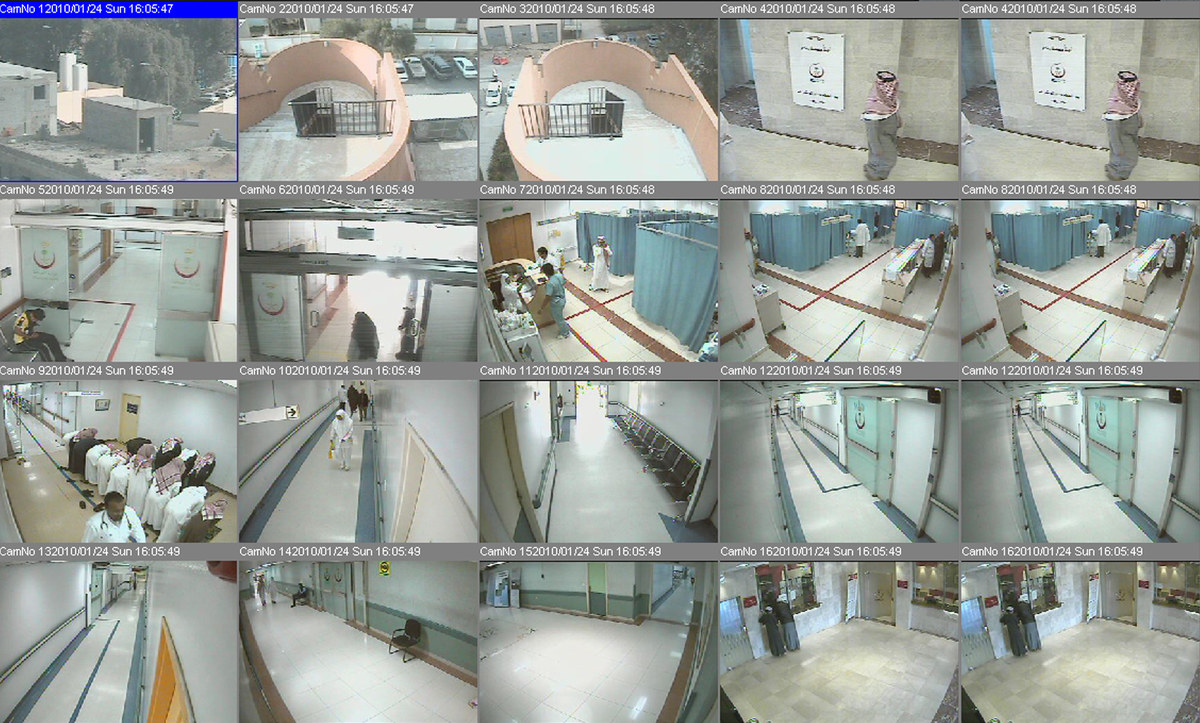
His 2010 artwork ‘CCTV’ made a powerful statement about how planning often fails to factor in a human approach. Supplied
As you might expect, Mater sees Saudi Arabia’s recent drive to open itself to the rest of the world as immensely positive. “It will be good for cultural exchange. Saudi has a very important heritage and history. I think that will create a lot dialogue,” he said.
Mater grew up surrounded by the art of his mother, a calligrapher and painter of traditional Asiri houses. He has come to appreciate this early exposure to art — something he took for granted as a child. “My mother was a big influence,” he said. “(Her paintings made) the home full of color and life — as though we were sitting in a garden.” He recalled how, as a young man growing up in in the city of Abha in the Asir Mountains close to the Yemeni border, he was thirsty for knowledge and ideas.
“When I was younger I was always reaching out. I wanted to have information from other parts of the world. To know what was happening. To see TV from Egypt or Yemen. To watch films and listen to music,” he said.
That curiosity led him to become part of the earliest contemporary art movements in the Kingdom, with Edge of Arabia, Shatta and Mostly Visible, and subsequently with his Jeddah-based Pharan Studio. Mater was also named Founder Director of Misk Art Institute in 2017 — its inaugural year — and his tenure included overseeing the first Saudi National Pavilion at the Architecture Exhibition at La Biennale di Venezia.
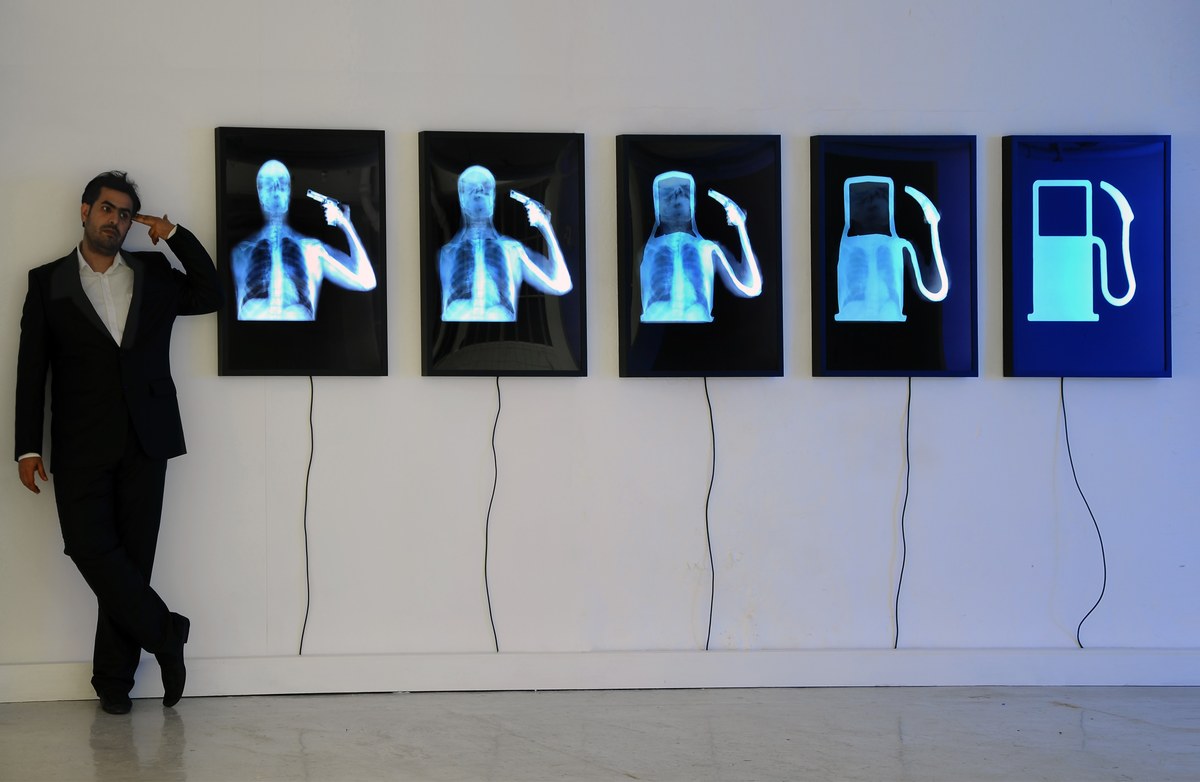
Evolution of Man, Ahmed Mater, (2010). Supplied
So, he has been a part of the Kingdom’s burgeoning art scene since the beginning. And he is emphatically optimistic about its future. “There is so much happening now,” he said. “Art is not just about beauty; it is also a statement about our social and political lives. We have seen a growth in arts education with music, theater and the arts now included in the curriculum of public and private schools.”
While Mater has enjoyed global success as an artist — among many other milestones, he was the first Saudi artist to hold a solo exhibition in the US — his art is strongly informed by his experiences as a doctor too. “In 2009, I was on the border between Yemen and Saudi Arabia dealing with casualties of the conflict from both sides. It was a very difficult time. I gave all I could give and saw the limitations of what could be done. It was crazy when soldiers turned up with their guns; once they arrived at the medical station they would just throw down their weapons and put their trust in us to give them help,” he said.
“It was a very important experience for me learning how to do that type of work. As medics we made no distinction between Saudis or Yemenis when it came to treating the injured. It was about treating the human — that was everything.”
Mater’s experiences on the frontline made him reconsider his view of a doctor’s role, he said. “When I first started out in my medical career I saw it as being purely about science. But as I became more experienced, I came to understand that there is so much more to treating patients. It is very subjective and requires a common sense and holistic approach. Greeting your patient by name and taking the time to share some words is very important. These small things mean a lot and will make the patient feel better.”
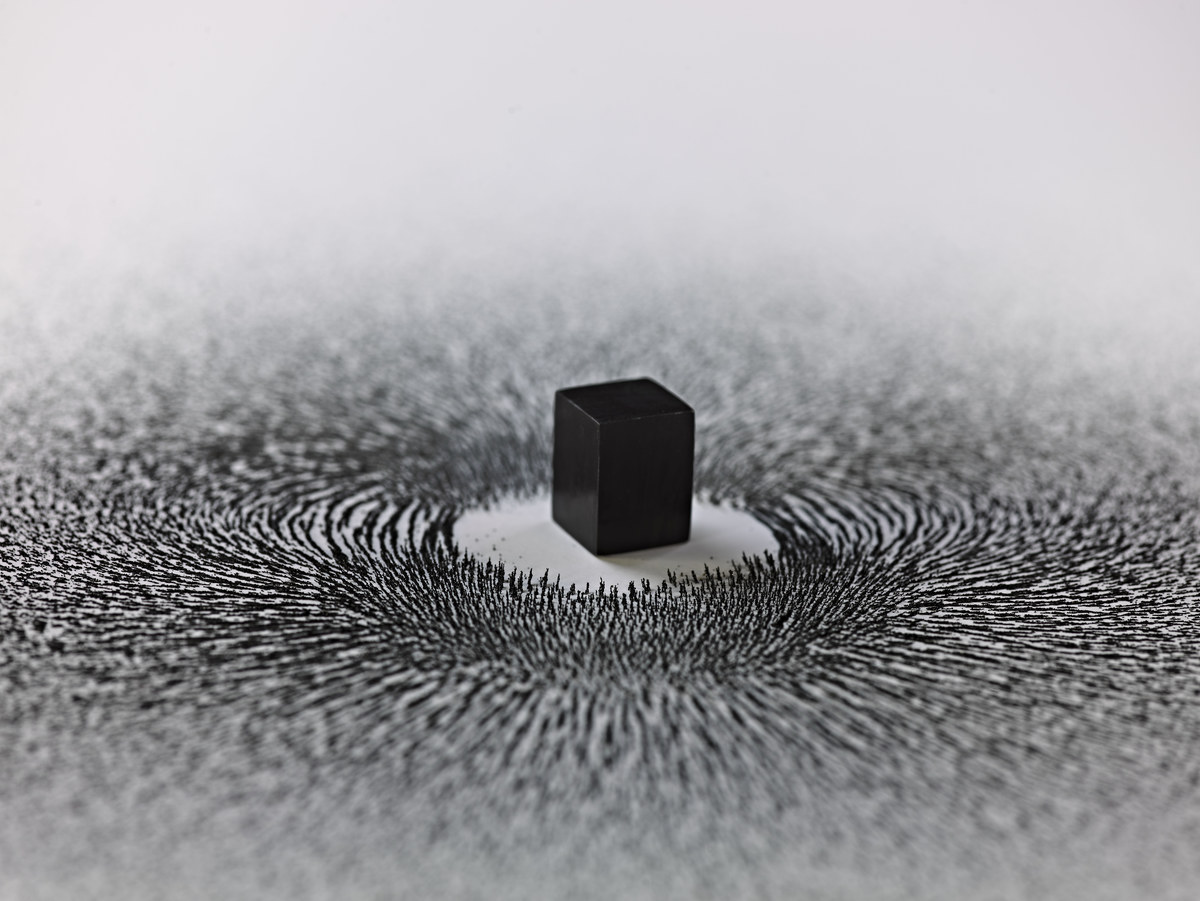
Magnetism, Ahmed Mater, (2009). Supplied
In 2012, Mater moved to Makkah and began his acclaimed “Desert of Pharan” project, named after an historical name for the region around Islam’s holiest city. The project consisted of hundreds of photographs and films documenting the area’s rapid development, and evoked fond memories from his childhood.
“I am very connected, spiritually, to Makkah,” he said. “I grew up in this community (where we) saw all the people going (on Hajj) and moving around the Kaaba. I remember my parents telling me, ‘When you go there you will feel like you are being pulled by a magnet.’ This is a big memory from my childhood.” It was this memory that inspired his “Magnetism” works — a central black magnet surrounded by (and attracting) thousands of particles of iron.
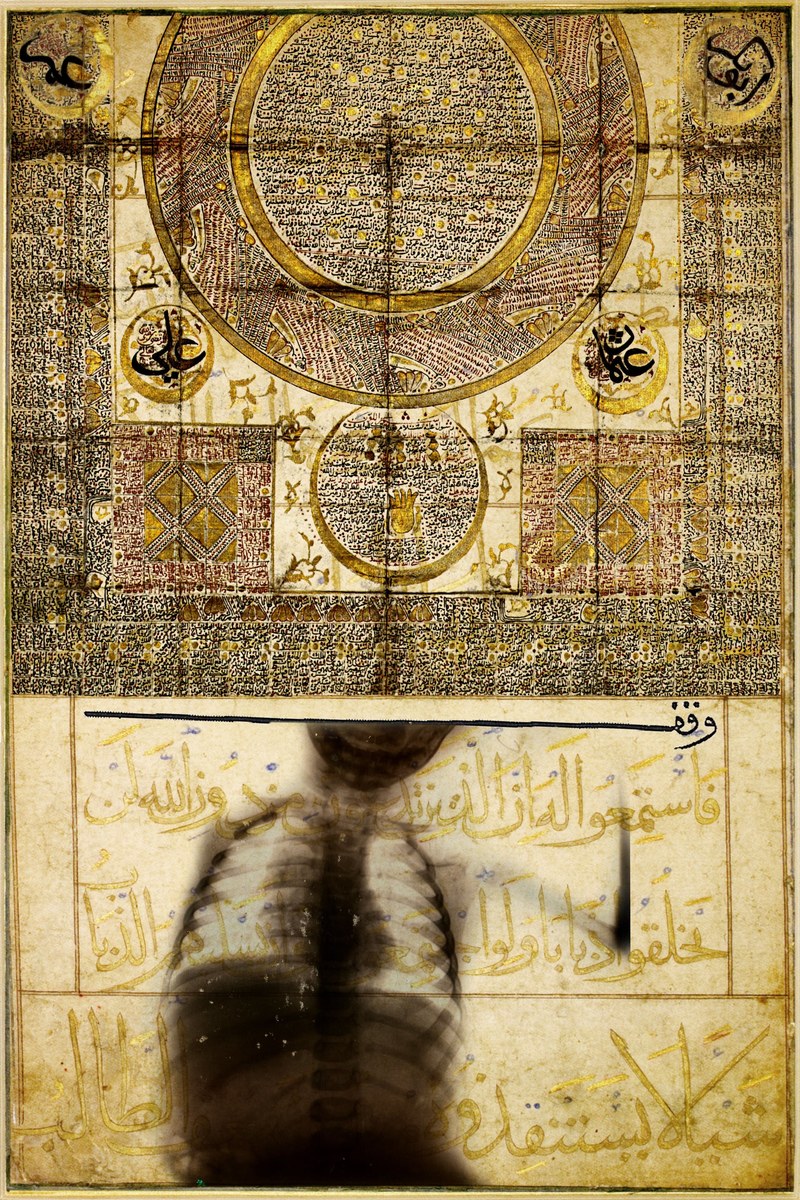
Talisman Illumination, Ahmed Matar, (2013). Supplied
When we spoke, the Kingdom was still locked down because of the COVID-19 pandemic. “It’s the first time I have ever seen Makkah empty,” Mater said. “Emotionally, it was very difficult, but of course I understand that, with 20 million people visiting every year, it was necessary for the government to move swiftly and protect people. It was a huge decision but a very important one,” he said.
Lockdown in his Riyadh studio has seen Mater working on his book “Prognosis/Saudi Arabia,” which examines the country’s progress since his birth in 1979, and his “Illuminations” series, which mixes the past — represented by traditional Islamic arts — with the present — through the innovations of modern medicine.
And he is hopeful that some good will emerge from the global crisis. “The pandemic will make us more aware of the needs of others. We all share the same problem,” he said. “I am optimistic this will change humanity for the better.”




















